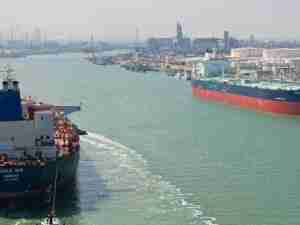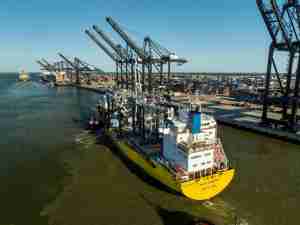Concerns that foreign levies on U.S. goods could curb growers' gains
Oakland, Calif. – Agricultural exports shipped from here have increased 42.7 percent in volume since 2013, the Port of Oakland said today. Port officials said that the vigorous growth reflects continued strong overseas demand for U.S. farm goods. They added that export growth could stall if foreign governments tax American goods in retaliation for Trump Administration tariffs.
“Overseas demand for high-quality American-grown products – especially in Asia - has never been stronger,” said Chris Lytle, the Port’s Executive Director. “We’d be disappointed to see anything curb the gains being made by American producers.”
According to just-released data, Oakland ag export volume totaled 375,727 20-foot containers in 2017. That was up from 263,218 containers just four years ago. The Port said that California producers accounted for 55 percent of Oakland farm shipments last year. Japan, China and South Korea were the top-three export destinations.
The Port tracks agricultural shipments closely since export cargo accounts for half of its total volume. Oakland is considered a principal U.S. gateway to overseas markets for two reasons:
It’s the last U.S. stop for ships heading back to Asia. That makes it the shortest route to the world’s fastest-growing markets.
Oakland is the closest port for producers in California’s Central, Napa and Salinas valleys.
According to Port data, leading export commodities from Oakland in 2017 included California almonds and rice. Oakland expects big increases in meat shipments beginning this fall. The Port said a 283,000-square-foot distribution center called Cool Port Oakland should open in September. The distribution center expects to export up to 30,000 containers of beef, pork and poultry annually. The Port said much of that product would originate in the U.S. Midwest.
The Trump Administration announced last week that it intends to impose tariffs on some steel and aluminum imports. China responded that it’s considering retaliatory tariffs on a range of U.S. commodities including some farm goods.










